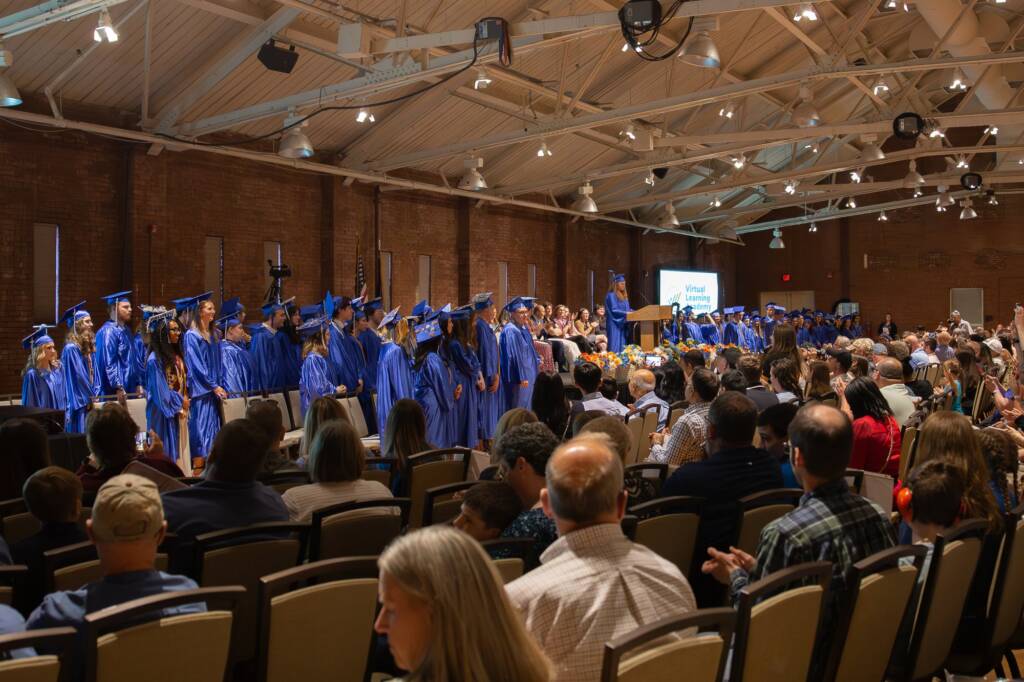Home Education Reaps Benefits of K-12 Online Learning.
As the educational climate rapidly changes, more and more parents are opting for a home education experience or some type of homes education derivative involving K-12 online schooling. This is because an individualized environment allows students to focus solely on education and therefore they do not suffer from the distractions found in a traditional learning environment.
In the 2011-2012 school year, approximately 3% of students were educated at home, according to the National Center for Education Statistics report on home education. As a supplement or a replacement, K-12 online schools and education offer unique components that home education does not.
***To see even more information about home education be sure to check out the FAQ section at the end of this article.
Here are a few ways online learning can help a K-12 home education student, as well as their parents:
- Online schools offer students unfettered access to course materials, assignments, and teacher inquiries. Additionally, students can interact with each other in an environment conducive to problem solving and collaboration.
- Virtual K-12 education gives parents a break. Functioning in dual roles as both teacher and parent can be overwhelming to the parent and child. If parent-teachers have a 9-to-5 job, their roles as teachers essentially become a second job. School-age children may have trouble distinguishing parent-time from teacher-time. Additionally, K-12 home education materials have to meet specific standards, and it becomes the parent’s responsibility to vet the materials with the local governing educational institution. Entrusting your children’s education to an online school ensures that educational guidelines and requirements are met.
- Online education offers parents and students unparalleled flexibility. Students can keep up with coursework when away from their parents or out of town.
A K-12 home education student generally receives an education in basic subjects such as English, Math, and Science. Supplementing with online scholarship gives students access to a greater selection of subjects like Photography, Economics, and Social Media. Additionally, students can receive quality instruction in subjects that are uncomfortable and/or unfamiliar to parents.
While K-12 home education is still an extremely viable option for some families, virtual learning is an excellent supplement. Feel free to check out our school profile to see what makes the VLACS K-12 online learning experience second to none. Also, be sure to visit our course catalog to see how you can begin to enhance your child’s K-12 home education experience.
VLACS Home Education FAQs
- Are there many home-educated students enrolled in VLACS courses?
Almost 25% of our students indicate that they are home-educated.
- I have never home educated my child. Where can I get more information about home education?
Information about home education is available on the New Hampshire Department of Education website. You can also contact your local school district for additional resources. Additionally, there are a number of organizations dedicated to helping families who want to educate their children at home. Many of these organizations along with additional information about home education can be found by conducting a web search.
- Do I need to file a home education plan for my child?
If your child is under the age of 18 and you choose to withdraw them from your local school prior to acceptance as a full-time student at VLACS, you must submit an intent to a home-school letter to your local superintendent, principal of a non-public school, or the Commissioner of Education within 5 business days of the official withdrawal from your local public school. A sample intent to home-school letter is provided below.
Date
Superintendent
SAU #
Address
Town/City, NH Zip Code
Dear Superintendent:
In accordance with New Hampshire RSA Chapter 193-A:5 and Administrative Rules Ed 315.04(a), this letter serves to notify you of the home education program for our child(ren).
Beginning date of home education program:
Child A:
Name:
Address:
Birthdate
Child B:
Name:
Address:
Birthdate
Parent/Guardian A:
Name:
Address:
Phone number:
Parent/Guardian B:
Name:
Address:
Phone number:
Please contact me/us if you have any questions.
Sincerely,
- If my child is home-educated can they take classes or participate in co-curricular activities at our local school?
In most cases, this is an option. Please contact your local school or SAU office for details. The law governing access to public school programs by non-public or home-educated students can be found here.
- Can my home-educated child earn a VLACS diploma without becoming a full-time student?
No. Only full-time VLACS students may earn a VLACS diploma. In order to become a full-time VLACS student, a student must successfully complete the full-time admissions process which is outlined here.
- How do I know if my child is a full-time VLACS student?
All students taking VLACS courses are considered to be part-time unless they apply and are formally accepted to our full-time program. If you have completed the formal VLACS admissions process you and your child will be notified when acceptance to the full-time program is official. More information about the application process is available here.
- Do home education courses count toward VLACS graduation requirements?
In accordance with the New Hampshire Department of Education rules, VLACS does not grant credit for prior work/accomplishments completed by a home-educated student. However, VLACS may waive credit requirements based on work completed as part of a home education program. To have credits waived a parent/guardian must supply one or more of the following:
– A transcript from an approved school
– Certification from a state-approved and/or accredited education program
– Certification issued by the commissioner of education, resident school district superintendent, or non-public school principal pursuant to a home education program established in accordance with RSA 193A, or (for students located outside of New Hampshire) certification from a home education program recognized and/or accredited by the Department of Education, or equivalent state agency, in the student’s home state.
-Any other documentation that VLACS believes will allow it to determine proper grade placement (such as test scores).
For more information please review the VLACS grade placement policy or visit the New Hampshire Department of Education website.
- My home-educated child has been accepted as a full-time VLACS student. What do I do next?
Once a student is accepted to VLACS or their home education has ended, written notice of termination should be sent to the same entity with whom you filed your home education plan within 15 business days.



